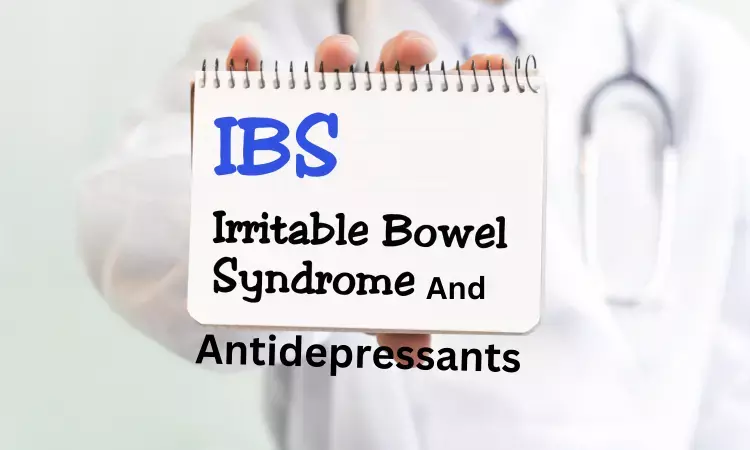- Home
- Medical news & Guidelines
- Anesthesiology
- Cardiology and CTVS
- Critical Care
- Dentistry
- Dermatology
- Diabetes and Endocrinology
- ENT
- Gastroenterology
- Medicine
- Nephrology
- Neurology
- Obstretics-Gynaecology
- Oncology
- Ophthalmology
- Orthopaedics
- Pediatrics-Neonatology
- Psychiatry
- Pulmonology
- Radiology
- Surgery
- Urology
- Laboratory Medicine
- Diet
- Nursing
- Paramedical
- Physiotherapy
- Health news
- Fact Check
- Bone Health Fact Check
- Brain Health Fact Check
- Cancer Related Fact Check
- Child Care Fact Check
- Dental and oral health fact check
- Diabetes and metabolic health fact check
- Diet and Nutrition Fact Check
- Eye and ENT Care Fact Check
- Fitness fact check
- Gut health fact check
- Heart health fact check
- Kidney health fact check
- Medical education fact check
- Men's health fact check
- Respiratory fact check
- Skin and hair care fact check
- Vaccine and Immunization fact check
- Women's health fact check
- AYUSH
- State News
- Andaman and Nicobar Islands
- Andhra Pradesh
- Arunachal Pradesh
- Assam
- Bihar
- Chandigarh
- Chattisgarh
- Dadra and Nagar Haveli
- Daman and Diu
- Delhi
- Goa
- Gujarat
- Haryana
- Himachal Pradesh
- Jammu & Kashmir
- Jharkhand
- Karnataka
- Kerala
- Ladakh
- Lakshadweep
- Madhya Pradesh
- Maharashtra
- Manipur
- Meghalaya
- Mizoram
- Nagaland
- Odisha
- Puducherry
- Punjab
- Rajasthan
- Sikkim
- Tamil Nadu
- Telangana
- Tripura
- Uttar Pradesh
- Uttrakhand
- West Bengal
- Medical Education
- Industry
Tricyclic antidepressants effective for treatment of Irritable Bowel Syndrome

"Irritable Bowel Syndrome (IBS) hampers ones quality of life of a similar magnitude to individuals with other chronic gastrointestinal conditions, such as Crohn's disease, and worse quality of life than patients with other chronic non-gastrointestinal diseases, such as diabetes or heart failure."
Usually IBS are managed in primary care but at times, first-line therapies for IBS are ineffective, the UK National Institute for Health and Care Excellence guideline suggests considering low- dose tricyclic antidepressants as second-line treatment, but their effectiveness in primary care is unknown, and they are infrequently prescribed in this setting.
The largest trial of a tricyclic antidepressant in IBS ever conducted according to researchers reveals that the titrated low-dose amitriptyline was superior to placebo as a second-line treatment for IBS in primary care across multiple outcomes, and was safe and well tolerated. Researchers emphasize on the fact that general practitioners should offer low-dose amitriptyline to patients with IBS whose symptoms for those who did not improve with first-line therapies. The findings are published in The Lancet.
The randomised, double-blind, placebo-controlled trial (Amitriptyline at Low-Dose and Titrated for Irritable Bowel Syndrome as Second-Line Treatment [ATLANTIS]) was conducted at 55 general practices in England. Eligible participants were aged 18 years or older, with Rome IV IBS of any subtype, and ongoing symptoms (IBS Severity Scoring System [IBS-SSS] score ≥75 points) despite dietary changes and first-line therapies, a normal full blood count and C-reactive protein, negative coeliac serology, and no evidence of suicidal ideation.
Participants were randomly assigned (1:1) to low-dose oral amitriptyline (10 mg once daily) or placebo for 6 months, with dose titration over 3 weeks (up to 30 mg once daily), according to symptoms and tolerability. Participants, their general practitioners, investigators, and the analysis team were all masked to allocation throughout the trial. The primary outcome was the IBS-SSS score at 6 months. Effectiveness analyses were according to intention-to-treat; safety analyses were on all participants who took at least one dose of the trial medication.
The key findings of the study are
• A total of 463 participants (mean age 48•5 years [SD 16•1], 315 [68%] female to 148 [32%] male) between Oct 18, 2019, and April 11, 2022, were 232 randomly allocated to receive low-dose amitriptyline or 231 to placebo.
• Intention-to-treat analysis of the primary outcome showed a significant difference in favour of low-dose amitriptyline in IBS-SSS score between groups at 6 months (–27•0, 95% CI –46•9 to –7•10; p=0•0079).
• 46 (20%) participants discontinued low-dose amitriptyline (30 [13%] due to adverse events), and 59 (26%) discontinued placebo (20 [9%] due to adverse events) before 6 months.
• There were five serious adverse reactions (two in the amitriptyline group and three in the placebo group), and five serious adverse events unrelated to trial medication.
Researchers concluded that “To our knowledge, this is the largest trial of a tricyclic antidepressant in IBS ever conducted. Titrated low-dose amitriptyline was superior to placebo as a second-line treatment for IBS in primary care across multiple outcomes, and was safe and well tolerated. General practitioners should offer low-dose amitriptyline to patients with IBS whose symptoms do not improve with first-line therapies, with appropriate support to guide patient-led dose titration, such as the self-titration document developed for this trial.”
Reference: Ford AC, Wright-Hughes A, Alderson SL, et al. Amitriptyline at Low-Dose and Titrated for Irritable Bowel Syndrome as Second-Line Treatment in primary care (ATLANTIS): a randomised, double-blind, placebo-controlled, phase 3 trial. The Lancet. https://doi.org/10.1016/S0140-6736(23)01523-4.
MSc. Neuroscience
Niveditha Subramani a MSc. Neuroscience (Faculty of Medicine) graduate from University of Madras, Chennai. Ambitious in Neuro research having worked in motor diseases and neuron apoptosis is interested in more of new upcoming research and their advancement in field of medicine. She has an engrossed skill towards writing and her roles at Medical dialogue include Sr. Content writer. Her news covers new discoveries and updates in field of medicine. She can be reached at editorial@medicaldialogues.in
Dr Kamal Kant Kohli-MBBS, DTCD- a chest specialist with more than 30 years of practice and a flair for writing clinical articles, Dr Kamal Kant Kohli joined Medical Dialogues as a Chief Editor of Medical News. Besides writing articles, as an editor, he proofreads and verifies all the medical content published on Medical Dialogues including those coming from journals, studies,medical conferences,guidelines etc. Email: drkohli@medicaldialogues.in. Contact no. 011-43720751


